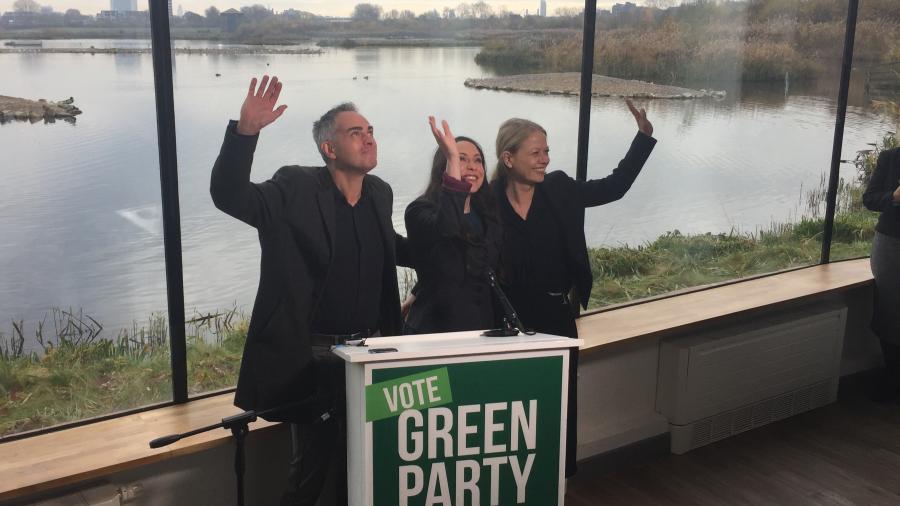When you’re facing an emergency, you need to act fast. But in a way that doesn’t only address the emergency, it also protects the interests of future generations.
That’s what lies behind the Green Party’s plan of action for ten parliamentary bills in two years - to tackle the climate crisis and kick start the transformation of Britain, in order to create a society that is equal, fair and works for everyone.
There are so many priorities. But we’ve narrowed it down to these ten.
First, a Green New Deal bill which lies at the heart of our legislative agenda to transform Britain: tackling the climate emergency at the speed and scale demanded by the science, putting us on track to reach net zero emissions by 2030, and at the same time reversing inequality and rebuilding social cohesion.
Second, we will introduce a bill for a People’s Vote so that people have the chance to decide on the future of our relationship with the EU, equipped with a full picture of the implications and trade-offs, not the lies and half-truths of the 2016 referendum campaign.
Third, a Sustainable Economy Bill reinforces the Green New Deal to ensure our economy works with our environment, not against it. That means binding targets on biodiversity, soil health and water quality monitored by a new enforcement body.
Short-termism is a curse of our political and financial decision-making. So fourth is the Future Generations Bill, which will require all non-devolved public bodies to balance the needs of today with the interests of future generations.
One of the urgent needs of today is the state of our NHS, limping from one crisis to the next after years of Tory cuts against a background of growing demand. It needs protecting from cuts and creeping privatisation, and we will do this with an NHS Reinstatement Bill which rolls back privatisation, abolishes the internal market, and increases funding by at least £6 billion a year.
A Further and Higher Education Bill will revive the education sector and provide a wider choice of academic and vocational learning. Tuition fees will be scrapped and student debt written off.
A Universal Basic Income Bill will transform our social welfare system with a phased-in unconditional financial payment to everyone, at a level above their subsistence needs.
A major failing of the past decade and more has been the shortage of affordable housing and two of our bills address this. A New Homes Bill would legislate to build 100,000 new zero-carbon homes for social rent each year, with central government adequately funding local authorities to provide these homes. And a Renters' Bill would make housing more secure and bring down rents, through rent controls on private tenancies so that rents reflect local income levels. The bill will also end no-fault evictions, and ban discrimination against those on benefits.
The challenges we face are not only an accelerating climate crisis and corrosive levels of inequality. Our democracy is also on life-support with a deeply unfair, undemocratic voting system. Our tenth bill is the Fair Votes Bill which will replace the first-past-the-post system for parliamentary and local government elections with proportional representation, create a fully-elected House of Lords (to be re-named, of course) and give 16 and 17-year-olds the right to vote and shape the future they want.
This is our agenda to build a better, fairer, sustainable future with prosperity shared across the UK. We face an emergency on so many fronts. It’s not enough to tackle one, we need to address them all. Franklin Roosevelt took 100 days to launch his New Deal. We’ve given ourselves a little longer, but our ambition is the same: a transformation of Britain to last for generations.




Join The Discussion